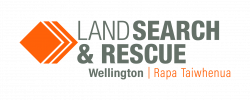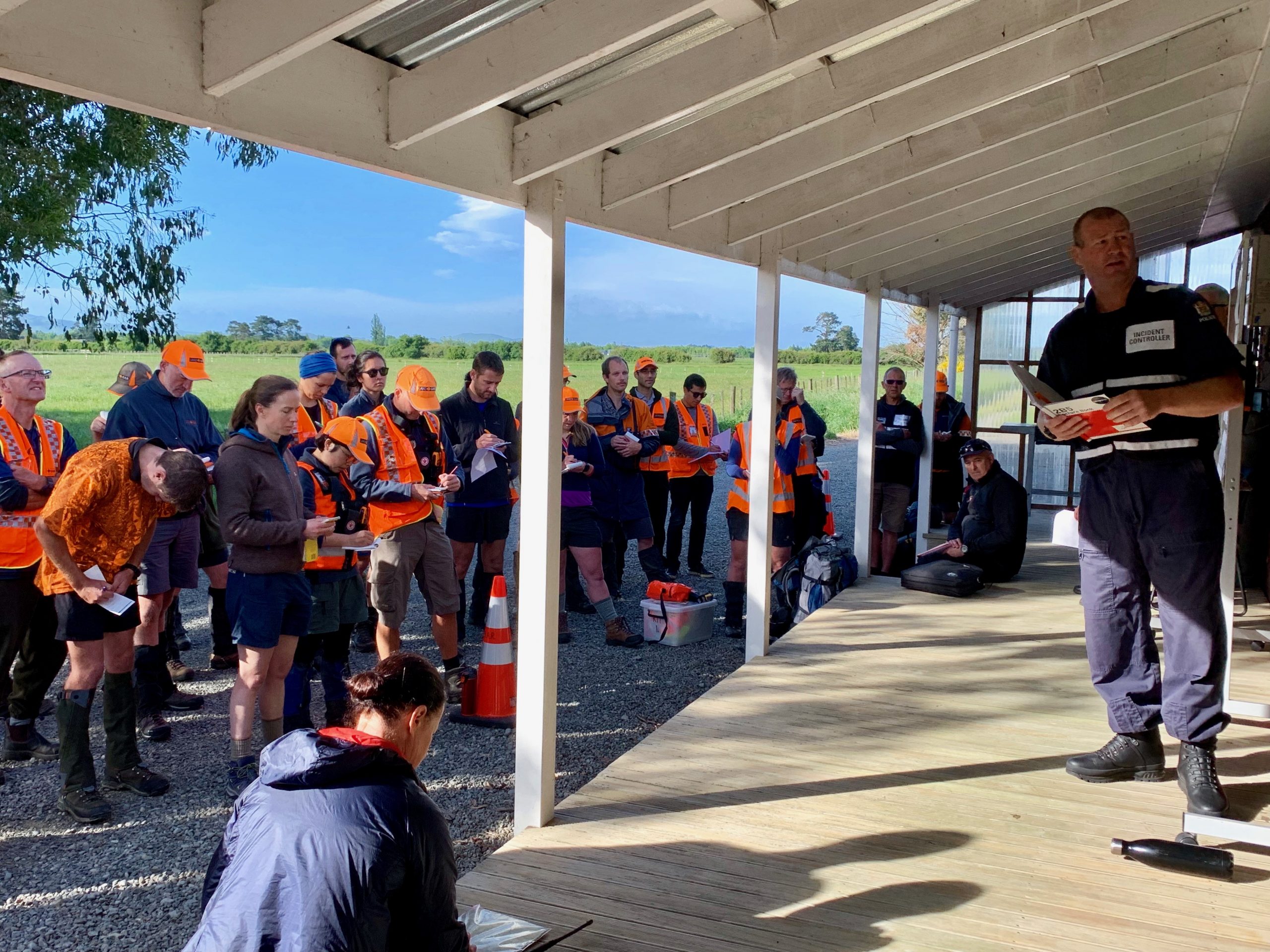
Join Us
What roles does LandSAR Wellington have?
Members of Land Search and Rescue Wellington can join the Field Team, the Incident Management Team, or both. If you’re interested in volunteering for Land Search and Rescue Wellington, have a read of the information here and check out our application process at the bottom.
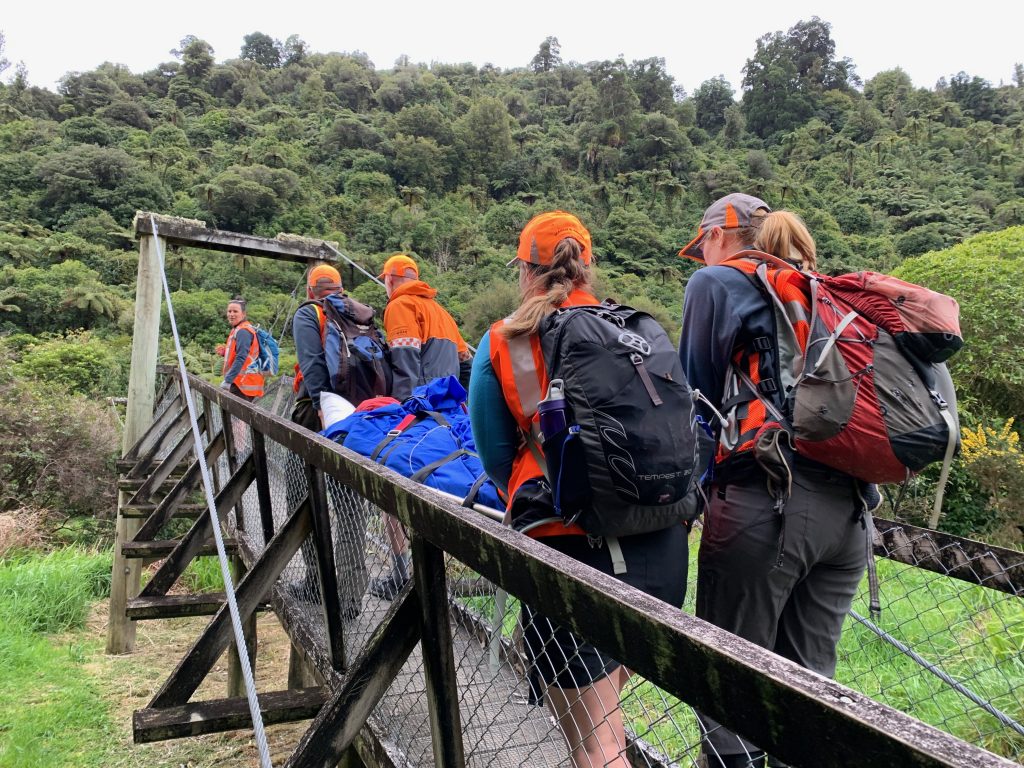
Field Team
Field team members work together to search in a variety of terrain, including backcountry on and off track, the coastline, Wellington’s reserves and parks, and suburban housing. A lot of Wellington’s searches are in the front country and require interaction with the public. Teams may be deployed for a period of 6-10 hours either during the day or night and then return home, or may camp out overnight and continue searching for two or more days.
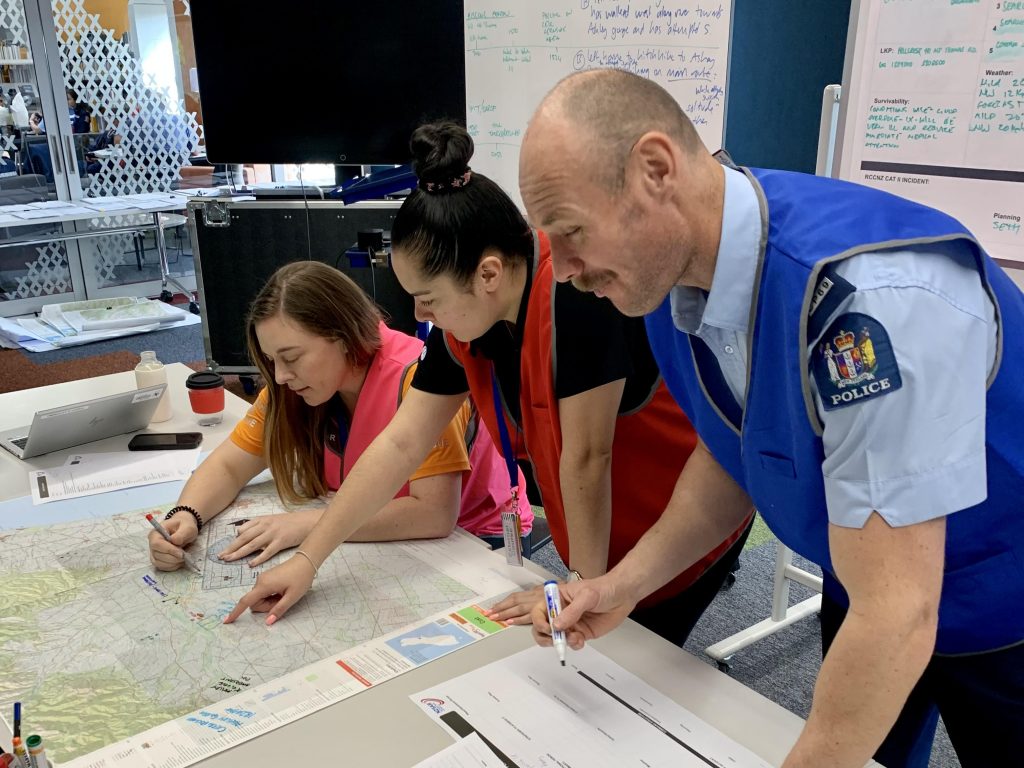
Incident Management Team
The Incident Management Team (IMT) is responsible for planning and managing the search, gathering information and developing intelligence. The IMT is led by the Police and is based in our Operations Room in Lower Hutt. CIMS, the NZ Coordinated Incident Management System is used, and in Wellington we use a variety of IT tools, including ArcGIS.
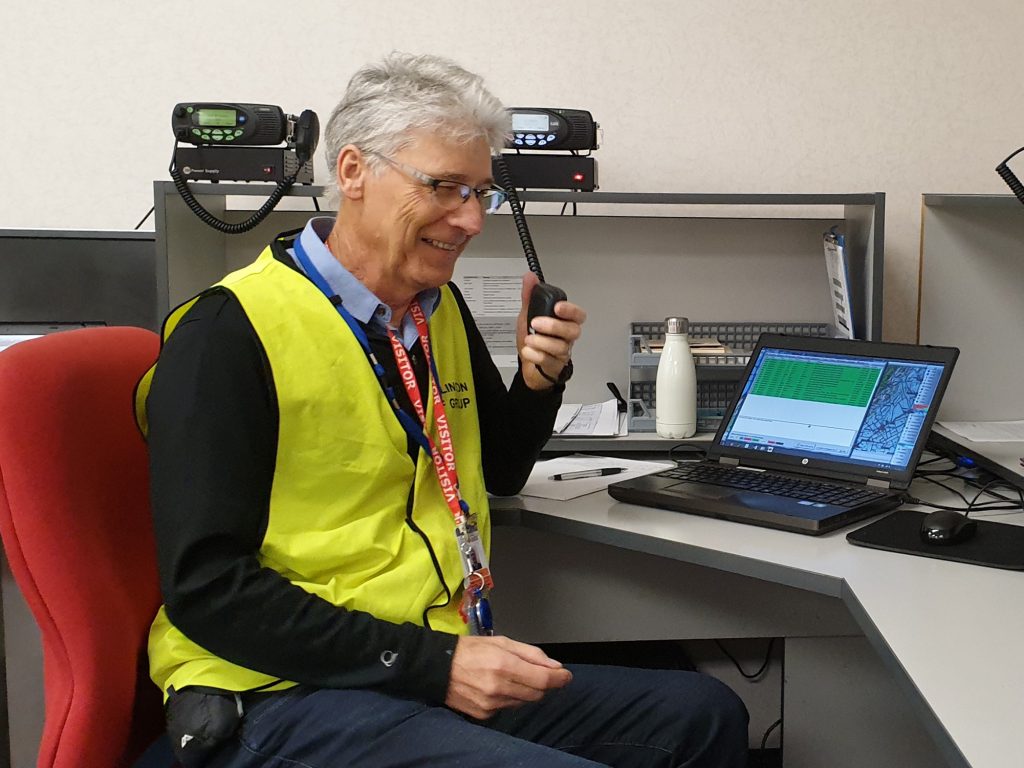
Communications
The radio communications for Search and Rescue Operations in Wellington are managed by the Amatuer Radio Emergency Communications Wellington Group. If you’re interested in supporting search and rescue via radio communications, please get in touch with AREC.
What kind of skills do members need?
One of our key criteria for joining is availability, particularly for weekday callouts, and ability to regularly attend training. We usually train twice per month on Thursday evenings, with one IMT training session and one Field training session. Some training, courses and exercises take place over the weekend.
General skills and attributes for both Field and IMT members
- COVID-19 vaccination and the ability to pass Police vetting checks
- Availability, including the ability to leave work for callouts during Mon/Fri and attend training. Please ensure you have the support of your employer before applying
- Local area knowledge (Belmont Regional Park, Remutaka Forest Park, Akatarawa Forest Park, East Harbour Regional Park, Makara, Kapiti, Wellington Town Belt, Southern Tararua Range, Aorangi)
- Confidence interacting with the public (e.g. to be able to knock on doors or phone people in the middle of the night)
- Team work, cooperation, and respect
- Understanding of basic safety management systems
- Experience with people with mental health illnesses/dementia/autism is an advantage
- Workplace first aid certification is a plus
Field team skills
- Confidence tramping off-track, in the dark, and in all weather types both above and below the bushline
- Competence using both map/compass and GPS, river crossing and general bushcraft
- Fitness and stamina, including the ability to head out after a day’s work and tramp through the night carrying your own pack plus team equipment
To provide some guidance on fitness, membership should be able to tramp the following while carrying their overnight pack +5kg extra:- Kaitoke roadend to Alpha Hut via Marchant track in 7hrs
- Kapakapanui loop track in 6hrs
- Catchpool roadend to Mt Matthews summit return in 9hrs
Incident Management Team Skills
- Ability to cope with ambiguity and incomplete information and make rapid decisions
- Ability to analyse information and turn it into insights
- Good multi-tasking and ability to cope under pressure
- Being a self-starter that doesn’t need to be closely managed
- A good level of IT skills (using ArcGIS is a big plus)
- Knowledge of the NZ Coordinated Incident Management System (CIMS) is really helpful but we also take new IMT members who don’t have that experience.
- Having CIMS3 or CIMS4 qualification is a bonus.
What kind of gear do Field Team members need?
We expect those applying as Field Team members to have sufficient equipment for overnight tramping. The below list is a bit of a basic guide, but this is not everything that we take on search and rescue operations.
If you’re missing one or two things, or considering upgrading, we suggest that you wait until you’ve joined and have discussed with us the best options to use in search and rescue, and can access our discounted gear through our national sponsors.
Gear List
- Pack with waterproof liner
- Tent, bivvy or tarp for shelter
- Sleeping system, including sleeping bag and mat
- Raincoat and overtrousers
- Warm clothing, hat and gloves
- Sun hat, sunblock and insect repellent
- 2L water bottles or bladder
- Cooking kit, including cooker and fuel
- Survival kit
- First aid kit and personal medications
- Toilet paper and any toiletries
- Compass for map reading
- Whistle
- Pen, pencil and paper/notebook
- Food and snacks for 48 hours
- Hiking shoes or boots, and gaiters
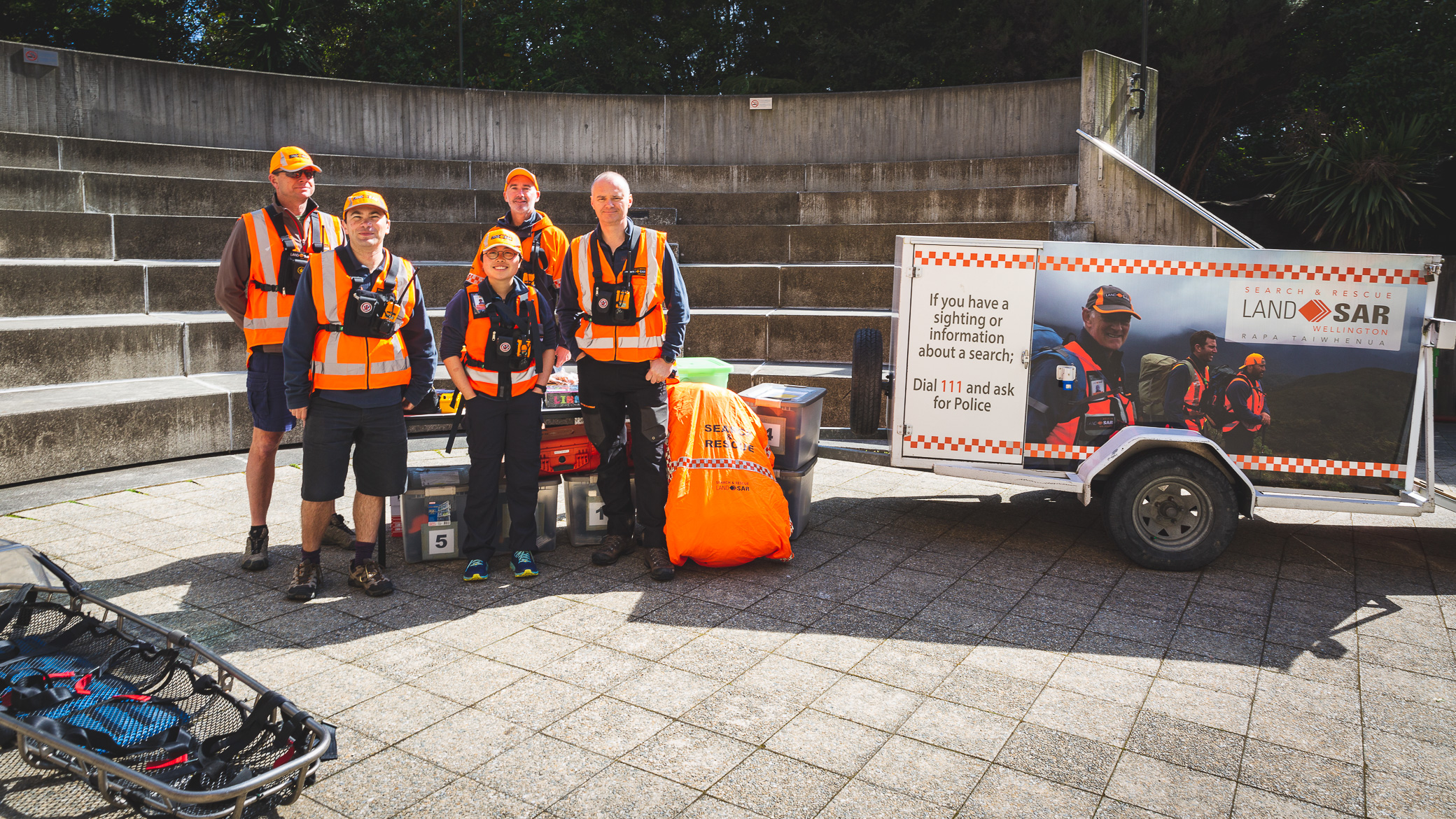
What’s the ongoing commitment for training and callouts?
Land Search and Rescue Wellington usually holds training twice per month on Thursdays, one Field training session and one IMT training session. Members must attend at least 50% of the relevant training to remain on the operational callout list, but new members should be attending around 80% of the training to build their skills. Members also need to attend some weekend-long training courses, and we hold at least one weekend-long training exercise per year.
We average about 3-5 callouts per year. We appreciate that at certain times operational members are not able to respond due to work or family commitments but if you cannot attend any callouts (i.e. you are always unavailable during work hours, evenings or weekends) then this is not for you.
Application Process
LandSAR Wellington usually holds one intake for new members every 1-2 years. The process may vary, but usually follows the below steps:
- Complete the Expression of Interest form to get on our mailing list to notify next time we hold an intake.
- An initial short application form is completed. Some applicants will then be invited to submit a full application.
- A full and detailed application form is completed. In-person interviews are conducted and referees are spoken to.
- A navigation and map test (both IMT and Field) and a check of applicant’s personal gear (Field only) is conducted.
- An overnight assessment is conducted with Field applicants
- Police vetting checks are conducted.
- Successful applicants will be invited to join Wellington LandSAR as a probationary member (non-operational) and attend an orientation session.
- Probationary members must then attend some weekend courses and evening training sessions to meet the requirements to become operational and attend callouts.
Do you think you’ve got what it takes to join our team? Applications for our 2024 intake have now closed, but if you want to be notified about our next intake, join our mailing list below.
